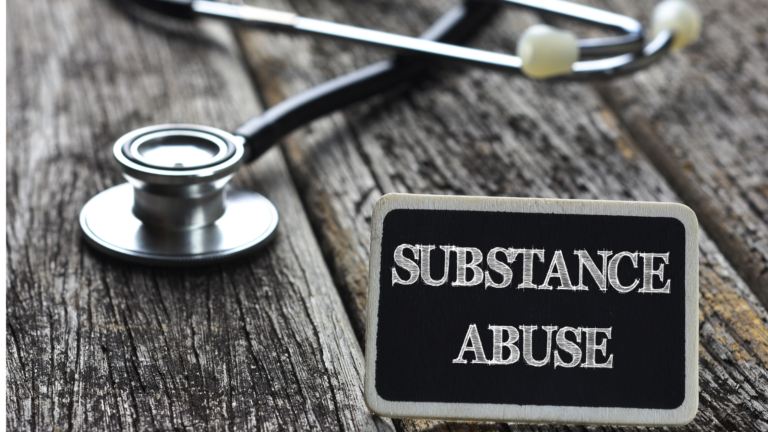4 Challenges on The Path to Sobriety and How to Overcome Them
When individuals have difficulty with an addiction, their brain rewires itself. And what usually would be a feeling of happiness and motivation turns into sadness and low self-esteem. Addiction changes our psychological functions and makes us think and feel different, turning the path to sobriety a lot more challenging. However, that doesn’t mean that achieving sobriety is impossible, especially when you get help from a rehab like this Delray Beach drug rehab facility. These days, psychiatry and modern medicine offer numerous effective treatments and methods for people looking to rid themselves of their addiction. While there might be no one-size-fits-all solution, still therapy and treatment aid with different circumstances and goals.
Nonetheless, treatment alone won’t do the leg work to keep you away from giving into drugs. Instead, you have to consider it as a curriculum that you need to follow. And every person has to put in an individual effort to graduate. That said, the first step towards sobriety is recognizing and accepting that you have an addiction problem. The second is doing whatever you can to fight against it. From there, the pathway will be different for every other person. Likewise, every person’s journey to sobriety will be full of challenges and obstacles. And to overcome them, you must know what these challenges and hindrances are, so let us take a look at some of them down below;
The never-ending fear of relapse
Relapse is a challenge that plagues every recovering drug addict’s life. However, the fear of relapse presents a more significant challenge for most individuals in the recovery phase. We know that the pathway to sobriety won’t be a cakewalk at all. But, the fear of falling off the ladder and undoing all the hard work will build up unnecessary stress and tension in your life. Relapse is something that you should worry about as it shows that something went wrong during your recovery. But you shouldn’t let it hamper the excellent work you’ve done to maintain your sobriety.
Instead, consider it a learning opportunity to understand what triggers you. Doing so will allow you to prepare yourself, so it doesn’t happen again in the future. Moreover, when you identify signs of an incoming moment of relapse, you can search for an authentic guide to addiction recovery online. It’ll help you discover practical ways to remain sober for the foreseeable future.
Consistent drug craving
Craving drugs is an unavoidable reality in a post-recovery life. It will begin developing through the early months of coming out of rehab. These cravings will tempt you to pick your drug of choice and start indulging in it again, especially in moments of overwhelming emotions and stress. Moreover, when you return to your everyday life, you might experience a surge of old memories. They will be associated with your drug or alcohol abuse, making the temptation more challenging to avoid.
That said, if you want to manage your cravings better, you can always seek out help. So, when you know that there is an oncoming craving, you can get in touch with a friend, family member, or your therapist to help you navigate it easily. Doing so will allow you to remain on track and avoid relapse.
Fear of being a different person
There is more to drug and alcohol abuse than meets the eye. Sometimes, substances such as alcohol might be a part of your everyday life or social circle. Meaning, resisting the urge to consume alcohol during social occasions when someone explicitly offers it to you can be immensely challenging. Such an urge to drink usually comes from the sheer pressure to be like everyone else at that particular event.
However, you don’t have to be like others at all. You should embrace your uniqueness and dare yourself to remain sober. So, the next time your boss or coworker offers you a drink, opt for coffee or a glass of plain water. Assert your sobriety and stay away from people who ridicule you for doing such a thing. Furthermore, you can also remind yourself of the painful memories of your addiction to steer clear of the desire.
Repairing old relationships and building new ones
Healthy social networks and relationships that provide hope, friendship, love, and support are vital to maintaining your sobriety in the long haul. You will build meaningful friendships and relationships with your peers during your recovery journey. Moreover, the 12 step program will challenge you to communicate and build trust with others in your recovery group. During the recovery process, you’ll also have to make amends with people your addiction hurt in the past.
That said, this process can take months or even years, and it won’t be easy for you to do this when you’re fresh out of recovery. However, you can push yourself and free yourself from your old life and habits and embrace what is coming to you. Moreover, reconnect with your family and spend more time with them than you usually would. They will help you every step of the way to ensure you remain sober and get the help you need if you fall off track.
Conclusion
Every individual’s struggle and perception of drug abuse will vary. However, you will face challenges while trying your best to remain sober and healthy. Furthermore, some of these challenges will be difficult to identify, describe, or summarize. However, stay honest with yourself and the people you love. You will have the support you require to manage your post-addiction life effectively. If you fall, pick yourself up and learn from what you did wrong.










